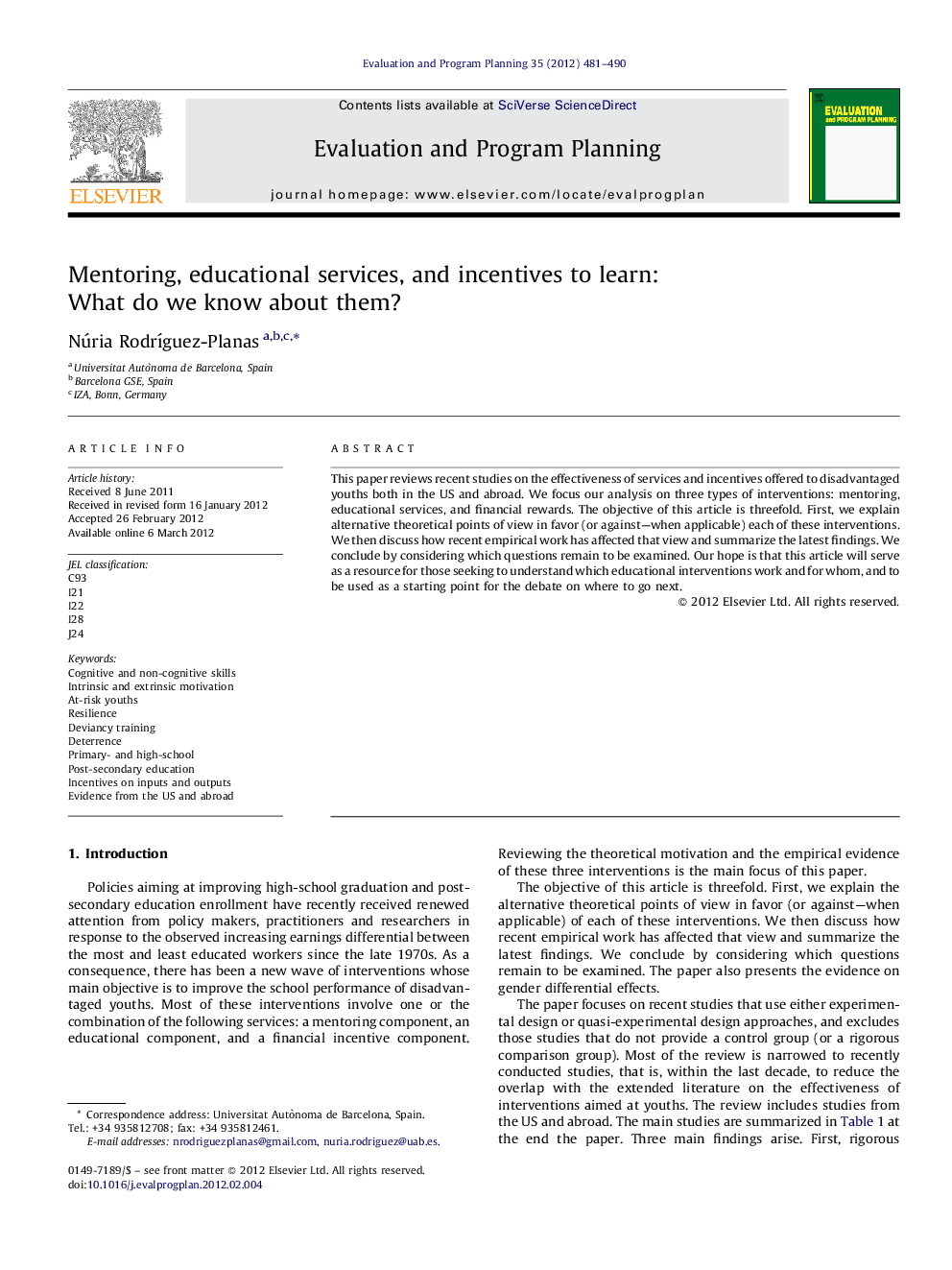| Article ID | Journal | Published Year | Pages | File Type |
|---|---|---|---|---|
| 322514 | Evaluation and Program Planning | 2012 | 10 Pages |
This paper reviews recent studies on the effectiveness of services and incentives offered to disadvantaged youths both in the US and abroad. We focus our analysis on three types of interventions: mentoring, educational services, and financial rewards. The objective of this article is threefold. First, we explain alternative theoretical points of view in favor (or against—when applicable) each of these interventions. We then discuss how recent empirical work has affected that view and summarize the latest findings. We conclude by considering which questions remain to be examined. Our hope is that this article will serve as a resource for those seeking to understand which educational interventions work and for whom, and to be used as a starting point for the debate on where to go next.
► Rigorous evidence on mentoring programs finds positive but modest effects on the young people that participate in them, and that the most disadvantaged or at-risk seem to benefit the most from them. However, there are concerns that these programs may backfire. ► Effect heterogeneity by gender appears so frequently that it is almost the rule rather than the exception. ► Interactions between different programs and services can potentially strengthen the effects.
